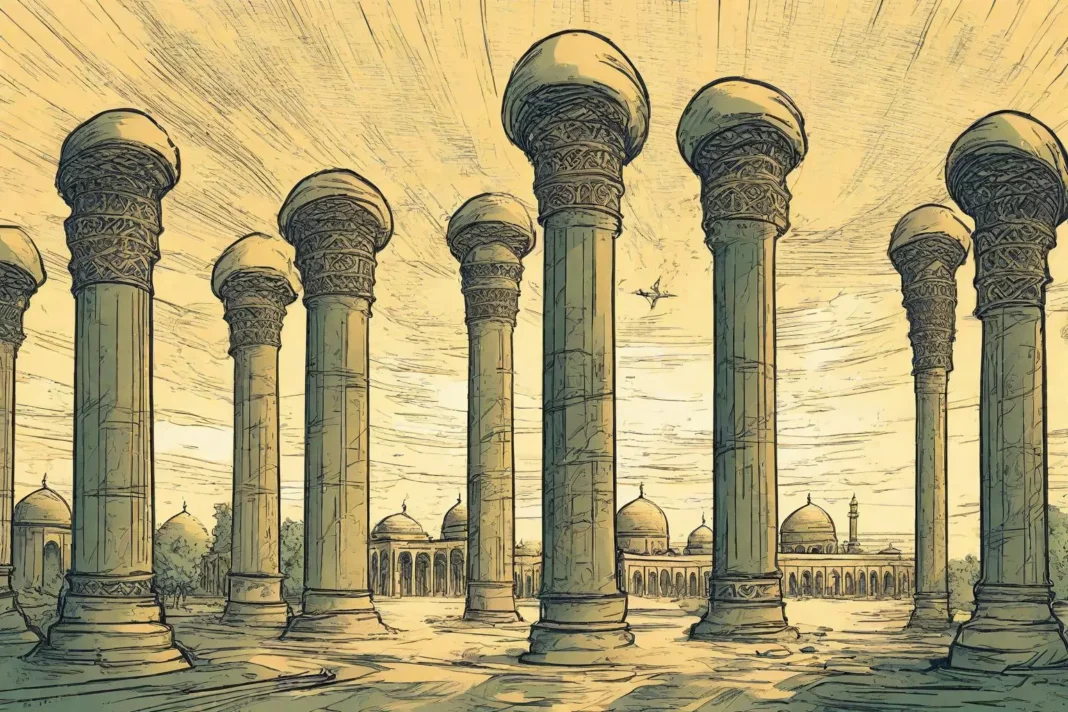Pillars of Islam in Order: Assalamalaykum dear viewers of The Sunnah Times. We know that every Muslim is aware about the 5 Pillars of Islam and their importance in our lives but, many people are still in doubt regarding the correct order of Islamic Pillars and we are here to help you, in order to sort out your confusion on this topic. Read our full article and say goodbye to your confusion.
Pillars of Islam in Order
There are 5 Pillars of Islam and the correct order of Islamic Pillars are as follows:
- Shahada (To bear Witness that there is No God but Allah and Prophet Muhammad is the messenger of Allah)
- Salah (Daily 5 Fard/Compulsory Prayers)
- Zakat (Alms-giving/Charity)
- Sawm (Fasting in Ramadan)
- Hajj (Pilgrimage to Mecca)
Shahada (La Ilaha iLallah)
Shahada is the first and the most important Pillar of Islam. The foundation of faith for any Muslim is through Shahada, to believe there is No God worthy of worship except Allah and Prophet Muhammad is the messenger & servant of Allah.
Allah (God) is alone and only Allah is worthy of worship. He does not have any partners equal or beside him. To him only, belongs the heavens and the earth. He is the controller of everything which exist in the universe and everything belongs to him.
If anyone wants to enter into the religion of Islam, then taking Shahada is compulsory for them. A Muslim can only believe in one Allah (God) not many. If still any Muslim associates any partner with Allah or he worship other Man-made Gods then he has committed a major sin in Islam and also the biggest sin in Islam, which is Shirk.
Any non-Muslim who has entered the Islam by witnessing the Shahada, Allah SWT has given him the best welcome gift for entering Islam. Allah SWT has blessed him by forgiving his all Sins he committed before accepting Islam.
Salah (Prayer)
Salah is the second Pillar of Islam. After Shahada it is the most valuable Pillar of Islam. Any Muslim who has witness the Shahada, it is now obligatory on him to fulfil the 5 daily Fard (compulsory) prayers on their respected time.
Apart from daily 5 prayers, Friday congregational prayer is also compulsory for all Muslims, which is performed once in a week at the Mosque. Allah SWT has also ordered Muslims in the Quran to make time from their work, in order to gather together at Mosque for the Friday Prayer.
Salah is a gift from Allah SWT to the believers and also a evidence that we have a direct connection with Allah SWT. There is no barrier between him and the believer. The most amazing fact is that, a Muslim is closest to Allah SWT during Salah, when he performs sujood.
Zakat (Charity)
Zakat is the third important Pillar of Islam. Zakat is also known as Alms-giving. Every eligible Muslim should donate in charity or to the people in need out of his Halal Income. Giving Zakat is not limited for the particular period or only for the month of Ramadan but, it is for any time throughout the year.
A Muslim has to donate a fix 2.5% out of his total income. Zakat is a brilliant concept of helping the people in need or who are poor. Giving Zakat is also a solution for fighting against the poverty. If Muslims from all around the world start practicing the correct way of giving Zakat then the poverty percentage will go down soon.
Sawm (Fasting in Ramadan)
The fourth Pillar of Islam is Fasting in Ramadan. Ramadan is a month that comes every year prior to Eid Al Fitr, which is one of the biggest festival for Muslims in Islam. Ramadan is also known as the Holy Month, where Muslims avoid all the distractions in order to fully devote into worshipping Allah SWT.
Fasting in the holy month of Ramadan is mandatory for Muslims. In Ramadan, Muslims start fasting by having the Suhur meal before the Sunrise and they break fasting at the time of sunset. No food or water is allowed to consume once the fast has begun.
Any Muslim who leaves fasting in the month of Ramadan without any valid reason then he is sinful. The one who are genuinely not fit for fasting or they might be ill, for them Allah SWT has given an option to keep fasting even after Ramadan. For example any Muslim who has left 5 Fast’s of Ramadan then he can complete those 5 Fast’s even after the month of Ramadan.
Ramadan is not just only for fasting of food but there is fasting from every sin. A Muslim should fast for eyes by avoiding to watch any filth which is now common around us. A Muslim should also fast for ears that he may not hear any useless talks. A Muslim should also fast for the mouth that he may not backbite anyone. A Muslim should fast from all the various bad habits in order to fully devote.
Hajj (Pilgrimage to Mecca)
Last but not the least, Hajj is the fifth Pillar of Islam. Every Muslim who is capable of doing Hajj then it is mandatory on him for once in his lifespan. Hajj is performed every year by millions of Muslims. Hajj is performed only once in a year and that is why millions of Muslims gather together at the Haram Mosque in Kingdom of Saudia Arabia.
The Ka’ba which is located at the Haram Masjid, it is the first house of Allah, which was built by Prophet Abraham (Ibrahim in Arabic) on the command of Allah SWT himself. Allah SWT ordered Prophet Abraham to perform Hajj around the Ka’ba and invite more muslims to perform the same ritual.
The time period to perform Hajj is right after the month of Dhul-Hijjah and then Muslim celebrate their second biggest festival Eid Al Azha. Any non-Muslim cannot enter into Mecca to perform Hajj, as this Islamic ritual is exclusively for the believers of Islam who have faith in Allah SWT. Still any non-Muslim who wants to enter this holy place then Allah SWT has created a way for them, that is to take the Shahada.
The most amazing fact and also a blessing from Allah SWT about performing Hajj is that, Allah forgives all sins of the believer if he performs Hajj without any distractions and with sincere repentance.
This was our article on The Pillars of Islam in Order. To read more articles on Islam, then Click Here!

